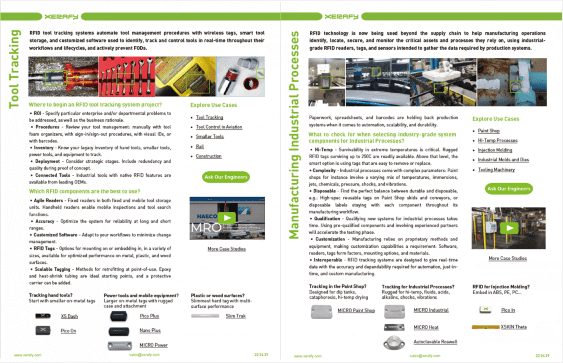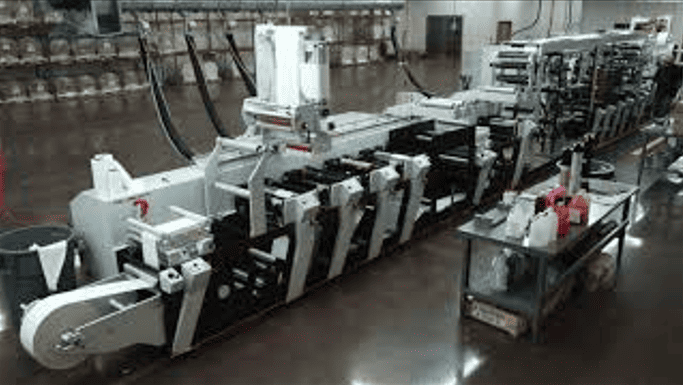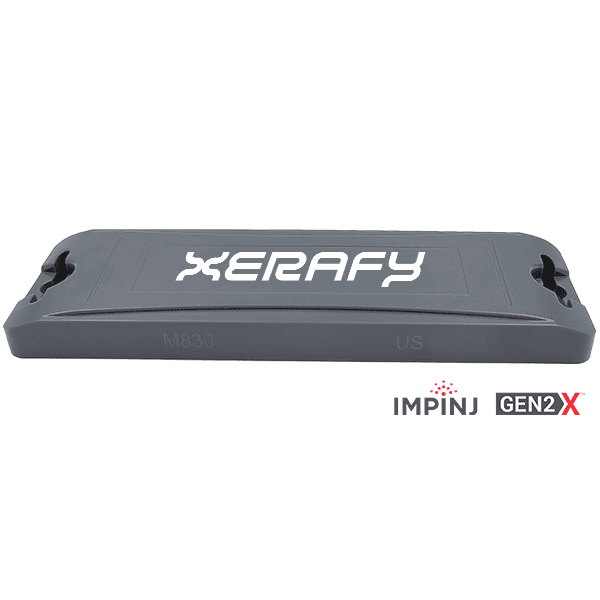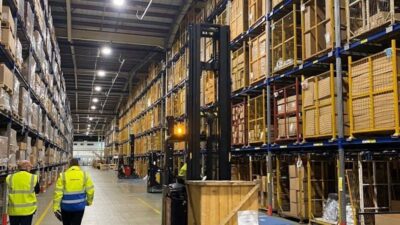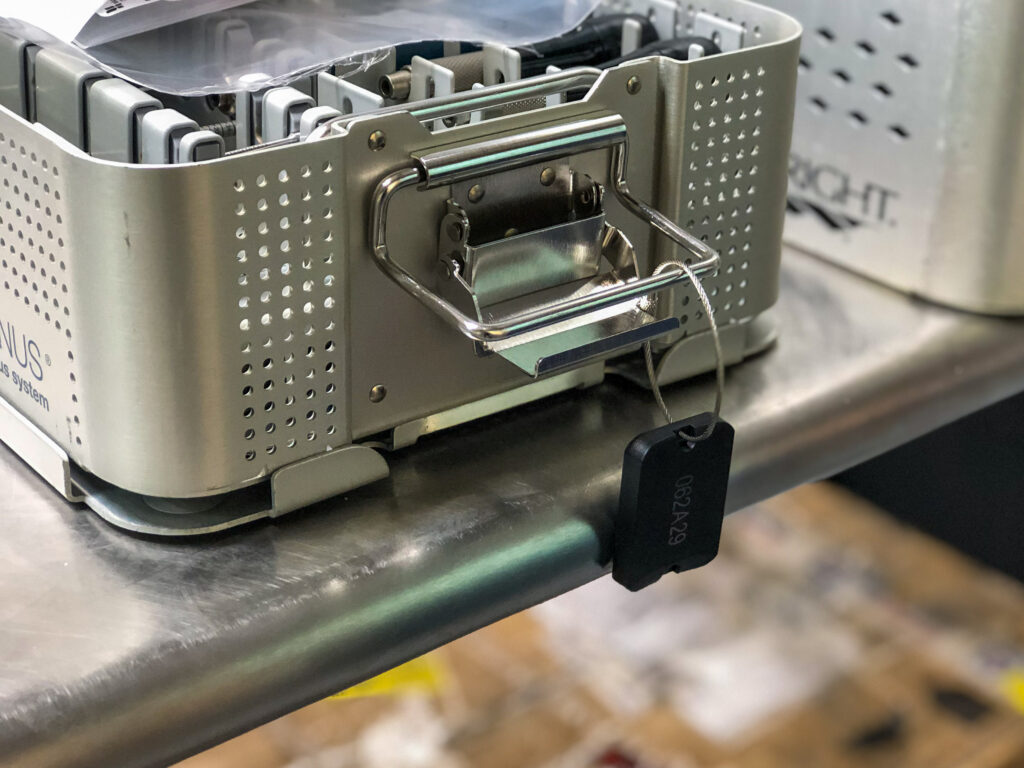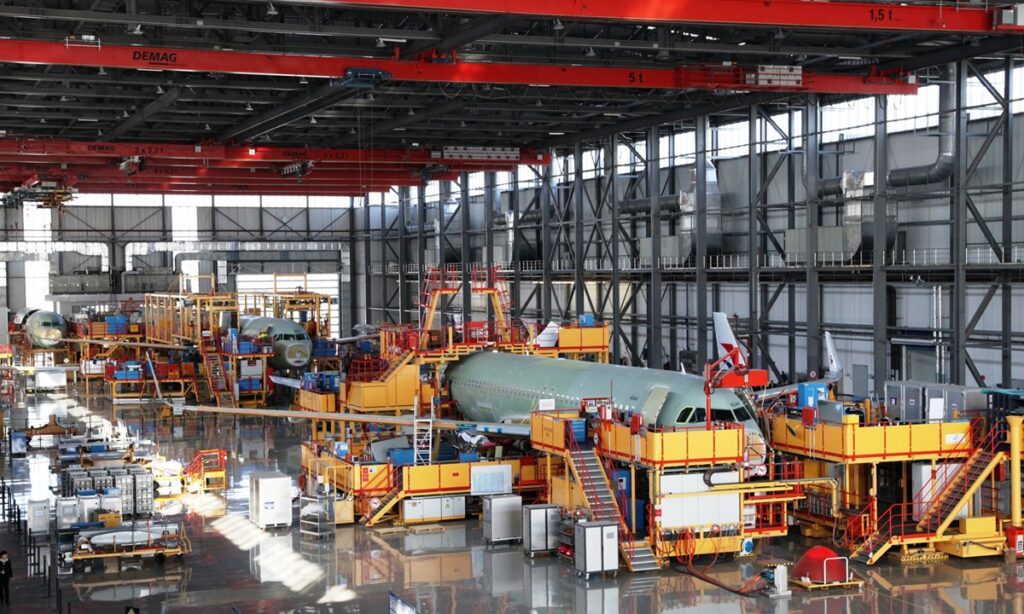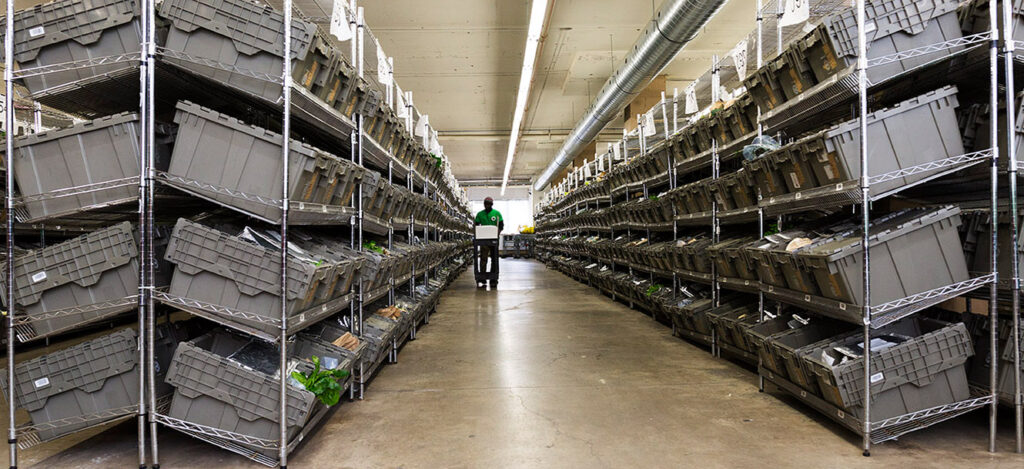Imagine if your morning brew came in a reusable coffee cup instead of a paper one. What if your lunch were served in a washable container rather than a plastic one? RFID technology is taking center stage into some of the foodservice industry’s sustainability initiatives, spearheading the shift from disposable to reusable serving items. , with initiatives food containers
In this white paper, the Xerafy engineering team shares its insights and expertise built at the intersection of technology and food, where efficiency meets sustainability.
Understanding Food Packaging Waste
The foodservice industry is a complex ecosystem, with end users encompassing a broad spectrum, including universities, hospitals, quick-service restaurants (QSRs), and online food delivery platforms.
The industry stands at a crossroads, grappling with a multitude of challenges that demand innovative solutions to be able to provide a more sustainable takeout experience:
- Staggering rise in single-use plastic packaging: The industry grapples with a surge in plastic packaging, contributing significantly to the overarching problem of plastic waste.
- Compliance with Sustainability Goals: Meeting sustainability goals and navigating waste reduction initiatives are imperative for both restaurants and customers in their quest for a more sustainable takeout experience.
- New Legislations: The industry faces the challenge of aligning with new legislations globally, specifically those prohibiting single-use packaging. These laws aim to bolster biodiversity and preserve natural resources.
- Food Safety and Traceability (FSMA 204): Compliance with Section 204 of the FDA Food Safety Modernization Act (FSMA) becomes paramount, necessitating enhanced recordkeeping for designated foods.
Traditional solutions are falling short of the industry’s growing need for sustainability. While some have resorted to recycling and compostable materials, these approaches are fraught with limitations, with only a small percentage of plastic or compostables being effectively recycled.
RFID Technology's Role in Food Packaging Sustainability
In recent years, a growing number of food service pioneers have been at the forefront of experimenting with technological solutions used to enable a shift in usage towards reusable food containers. These initiatives exemplify how RFID technology is being harnessed to reduce waste and promote environmentally-friendly practices in the food service sector.
RFID technology shines when it comes to operational efficiency. Traditional methods such as manual tracking and barcoding, while still prevalent, present limitations in terms of speed, accuracy, and scalability.
RFID surpasses these shortcomings by offering real-time visibility, precise inventory management, and automation. And it does all these while simplifying borrowing and returns for customers. This means that RFID provides convenience, scalability, and efficiency that set it apart as the optimal choice for foodservice operations.
Beyond operartional efficiency, the technology also aligns seamlessly with regulations banning single-use food packaging by providing a mechanism for compliance.
These pioneering projects not only demonstrate the practicality of RFID but also highlights the industry’s increasing recognition of its transformative potential. The experiences and outcomes of such stakeholders reinforce RFID’s role as a driver of change for the foodservice industry.
Customizing RFID Tagging for Food Packaging Solutions
RFID tags are the key enablers in the transition from disposable to reusable serving items.
The tags come in various forms, each uniquely suited to the demands of the application. For instance, RFID tags applied to food containers, cups, bottles, and cutlery play a pivotal role in facilitating efficient tracking. They typically operate on ultra-high frequency (UHF) bands, ensuring robust and reliable performance.
The tags are designed to withstand the rigors of the foodservice environment, characterized by repeated washes at high temperatures. Moreover, these tags are food-safe, heat-resistant, and water-resistant, ensuring their longevity and durability.

The Xerafy Circular TRAK is a reusable tag uniquely designed for long-term durability and sustainability in the circular economy.
One of the defining features of RFID technology is its adaptability and customization capabilities. Each RFID tag is encoded with a unique ID linked to a centralized database, enabling the real-time identification and traceability of serving items. RFID tags can be embedded in various forms, such as in-mold labeling (IML). This flexibility enables them to seamlessly integrate into different types of containers, including stainless steel and polypropylene plastics.
The ability to tailor RFID solutions to specific requirements ensures that foodservice establishments can effectively implement tracking technology without compromising on their unique operational needs.
Understanding RFID System Components
RFID can seamlessly integrate in foodservice operations to complement existing processes. RFID systems typically comprise RFID readers, antennas, and dedicated storage hardware, each playing a distinct role.
RFID readers serve as the gateway, capturing data from RFID tags on serving items, while their antennas amplify the signal, ensuring efficient tag detection, even in bustling foodservice environments. The readers can be strategically positioned at key points within dining facilities, such as entry and exit points, as well as near return stations. Handheld RFID devices empower restaurant employees to conduct inventory counts swiftly and locate specific products efficiently.
Moreover, the tracking technology can be integrated in dedicated RFID-powered automated return systems.
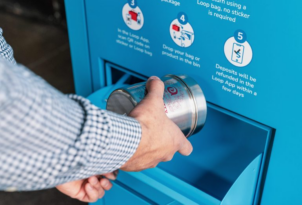
A track and trace function aids in identifying the precise location of containers, even when they find their way into disposal bins. This integration of RFID technology enhances operational efficiency and ensures the seamless inventory management of reusable containers.
With a keen focus on food safety and traceability, RFID systems align perfectly with the stringent requirements of the foodservice industry, ensuring that reusable containers maintain their integrity throughout their lifecycle.

Enhancing Foodservice Sustainability through RFID Solutions
Within the foodservice industry’s quest for sustainability, RFID technology is a complete ecosystem encompassing software solutions that are tailored to address the industry’s unique challenges.
These software solutions are designed to provide real-time visibility into inventory, aiding in the efficient management of reusable containers. They offer features such as automated data capture, inventory tracking, and reporting functionalities. Additionally, they empower foodservice operators to assess the environmental impact of their operations, aligning perfectly with sustainability goals.
One of the hallmarks of RFID software solutions is their flexibility in integrating with existing systems. In the foodservice industry, where established processes and software may already be in place, RFID software seamlessly complements and enhances these systems. RFID readers can be integrated into entry and exit points, existing inventory management software, and even handheld devices used by restaurant staff. This integration minimizes disruption and ensures a smooth transition to RFID technology while enhancing the overall efficiency of foodservice operations.
The foodservice industry is dynamic, with evolving regulations and shifting consumer preferences. RFID software solutions are inherently future-proof, adapting to industry changes and technological advancements. As new regulations emerge or sustainability goals evolve, these software solutions can be updated to align with the latest requirements.
Their scalability ensures that they can accommodate the growing needs of the industry, making them a reliable and long-term investment for foodservice operators. In a landscape where speed and adaptability are key, RFID solutions stand as a robust and forward-thinking choice.
In summary, RFID technology has emerged as a transformative force in the foodservice industry’s pursuit of sustainability.
Key Takeaways:
- RFID offers unparalleled tracking precision, aiding in the reduction of single-use packaging waste and carbon emissions.
- The technology provides cost-effective solutions for the foodservice industry, aligning with sustainability goals and regulatory compliance.
- Software solutions empower operators with real-time visibility and future-proofing capabilities.
- The RFID system’s components are adaptable, seamlessly integrating into existing processes.
- Customizable RFID tagging options cater to diverse needs within the industry.
The Xerafy engineering team is available to provide personalized guidance, tailored solutions, and further insights into implementing RFID technology within foodservice operations.
Xerafy is a pioneer in RFID for industrial applications, bringing to market several innovations that enable advanced identification and automation capabilities.
In addition to a complete range of field-proven RFID tags available off-the-shelf, Xerafy offers Custom RFID Tags services, covering everything from a personalization service bureau to custom-design engineering capabilities.

